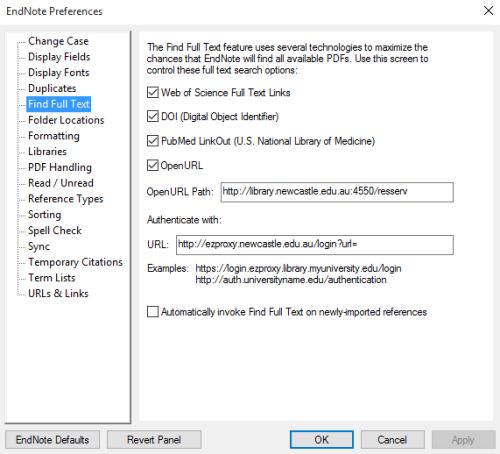Attaching files to records
Attaching Files to Records
EndNote provides the ability to attach files to records in your library. Added files are stored in the library’s Data folder. Any of the common file formats may be attached, including audio & multimedia files (wav, mp3, mov, Quicktime), PDF, Microsoft Access/Excel/PowerPoint/Project/Visio/Word files, and text files (txt, rtf, html).
Attaching files
- Right click on a record in the Library Window, then select References | File Attachments | Attach File
- Select a file, then Open. The file will be copied to the DATA\PDF folder, and an icon will appear in the Paperclip field within the Reference Window.
You can also attach files by dragging and dropping a file onto a record in either the Library Window or the Reference Window.
Up to 45 files may be attached to each record.
Using the Find Full Text command
EndNote can automate the process of locating and attaching full text files to EndNote records using the Find Full Text command. Find Full Text works most efficiently when the EndNote record includes a DOI within the DOI field.
|
Before using Find Full Text the first time, you must configure EndNote:
Ensure that each of the check boxes are ticked in this window and enter the following addresses in the corresponding fields:
Click OK (MAC - follow the steps above, click Save, then close the EndNote Preferences Window). |
 |
|
|
 |
| The Find Full Text Group Set will appear in the Groups pane – this group set provides details of the number of PDFs found and attached, PDFs not found, or URLs for PDFs that were found but could not be sourced. |  |
|
Reasons why Find Full Text may not locate a PDF:
|

 OR select Find Full Text from the References drop down menu
OR select Find Full Text from the References drop down menu